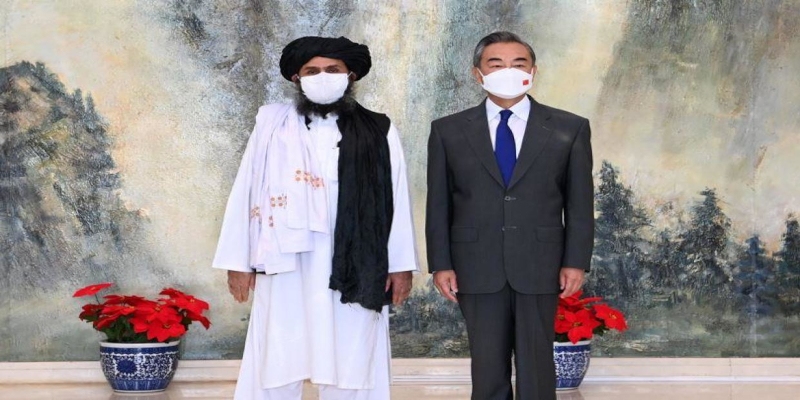Dharamshala, 21st August: The United States’ hasty exit from Afghanistan, which has been compared to the 1975 fall of Saigon, has been hailed as a victory for China and a chance for Beijing to expand its influence across the region. In the eyes of the Global Times, a state-run tabloid, it’s even been presented as a lesson for Taiwan not to rely on American security.
However, the irony fact for China is that the only thing worse than having US forces near its borders is not having them at all. Afghanistan has become a major concern for Beijing, which fears that the upheaval there will spread to China’s restive Xinjiang region and Pakistan. As part of President Xi Jinping’s Belt and Road Initiative, the People’s Republic has invested heavily in infrastructure projects and granted significant loans to Islamabad.
China’s Loss:
The nation has spent billions of dollars developing roads, dams, and power stations worldwide since the BRI was founded in 2013. China Development Bank and China’s two main political banks, Export-Import Bank, have lent an estimated $282 billion for Asian, African, Latin American, and European countries. As a result, for the first time in 2020, the Chinese capital account will show a deficit. The main benefit of Beijing’s push for overseas infrastructure has been Pakistan that shares borders both with China and Afghanistan. The China Pakistan Economic Corridor is estimated, according to sources, to be 62 billion dollars.
However, Beijing has recently begun to be concerned about its assets in the country. On July 14, nine Chinese engineers working on the $4 billion Dasu hydropower dam were killed in a bomb on a Chinese shuttle bus in northern Pakistan. The World Bank is funding the project led by state-owned China Gezhouba Group Co. and is not even part of the more contentious Corridor. This attack came after a suicide bombing at a hotel where the Chinese envoy was staying in April, which was carried out by the Pakistani Taliban.
A collapse of the BRI could have domestic ramifications. If Beijing’s generosity abroad is insignificant, the Chinese people may not be so charitable. Indeed, policy banks were created to implement fiscal stimulus and provide commercial loans in their own countries, not to assist failing states. The most powerful, China Development Bank, is already undercapitalized in comparison to its worldwide peers. Why should China’s banks get involved in troubled countries? Pakistan is a terrible case even with Beijing’s assistance. In the last 30 years, it has received 13 bailouts from the International Monetary Fund.
Although the United States’ hasty pullout from Afghanistan was bad for business, it was not a gain for China. One superpower desires the return of its men. What about the other? China merely seeks positive internal rates of return in order to justify its goal of a new Silk Road.







Leave a Reply